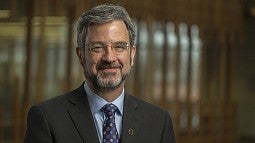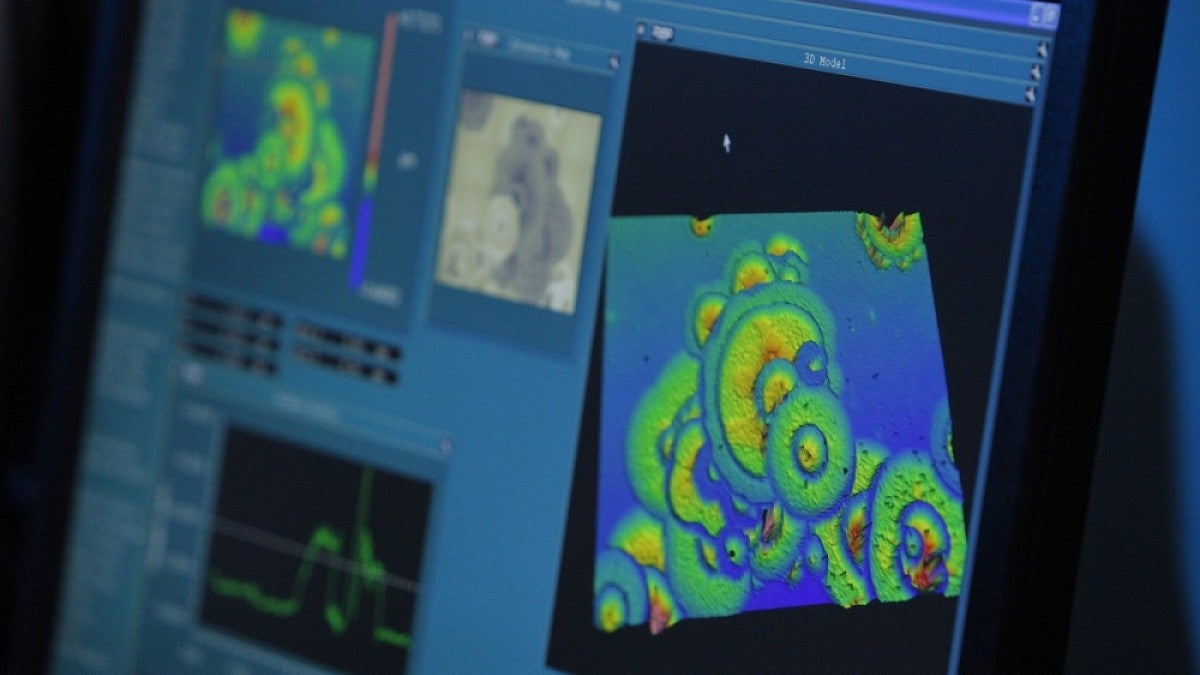The vision for the new Phil and Penny Knight Campus for Accelerating Scientific Impact is focused on how science can improve the human condition and solve complex problems. But what exactly does that mean?
UO biologist Patrick Phillips, acting director of the Knight Campus, will share his perspective on that subject in a community lecture Tuesday, May 9, at the John G. Shedd Institute for the Arts.

“If we just extend human life without changing the dynamics of how we age, what is the benefit?” said Phillips, a respected voice in the national conversation on understanding the biology of healthy aging. “There would be zero benefit. Health span is primary.”
He’ll dig into these issues in his presentation, “Science at the Nexus of Life and Death,” which will revolve around his efforts to understand the science underlying the aging process.
His talk will begin at 7 p.m. at the Shedd Institute, 868 High St., in Eugene. Admission is free, but tickets may be reserved online at the institute’s online ticket site or by calling 541-434-7000.
Phillips’ work on the genetics of stress resistance and healthy aging in roundworms revolves around the reality that people today are living longer. But along with lengthening lifespans come disabilities and health issues, which all too often put a strain on families.
His work and its potential to be transformed to benefit society illustrates the kind of game-changing research that will be the mission of the Knight Campus.
As science and medicine continue to extend human life, society needs to tackle ethical issues that are emerging, Phillips said.
“What is it that humans really want out of more time on Earth? What changes will arise in such everyday issues as employment, economics, social relationships and population management? Is living longer really desirable?
These are essential questions that need to be explored,” he said, “and we’ll do some of that on May 9.”
In his lab, Phillips pursues a fundamental question: What makes organisms the way that they are? He does so by studying complex biological processes using roundworms as a model system.
Across campus, other researchers use zebrafish — thanks to pioneering work at the UO — fruit flies and mice in their labs to ask questions about such things as early development, the microbiota of the gut and brain functioning. Discoveries in model organisms often lead to medical interventions for humans.
Phillips uses a variety of technological tools to explore the genetics, cellular development, neurobiology, reproduction and even sexual interactions of his worms. He also tackles evolutionary processes, including genetic mutations that lead to disease or help organisms adapt to environmental changes.
His efforts that address longevity made news earlier this year. He and 33 collaborators published a study in which they isolated a short list of compounds that showed promise for increasing the lifespans of genetically similar strains of roundworms. The work is funded under a National Institutes of Health-funded project for exploring issues of longevity in roundworms.
The findings are guiding the next steps in understanding how and when such compounds produce desirable results without undesirable side effects. Eventually, the research could lead to human clinical trials that may, in turn, help people retain optimum health and live longer.
When those results are realized, Phillips said, society may just be able to make better use of the wisdom that comes from aging.
“The Knight Campus is a once-in-a-lifetime opportunity to change the research landscape within Oregon, and future generations will be strongly affected by the work we are just beginning to think about today,” Phillips said.
—By Jim Barlow, University Communications


